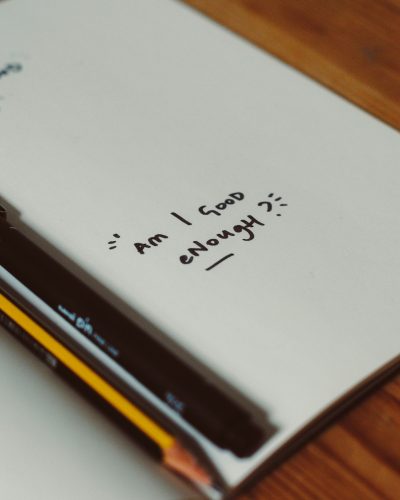Eating Disorder Therapy: Heal Your Relationship with Food and your Body
Struggling with an eating disorder can feel isolating and overwhelming, but you don’t have to go through it alone. We provide a safe, non-judgmental space where you can explore the roots of your relationship with food, body image, and self-worth. You may be reading this after struggling for years by yourself, or you are just starting to notice the stress that food is causing you. Wherever you are at, our goal is to support you in reclaiming a healthy, balanced life and restore your relationship with food and your body.
Understanding Eating Disorders
Eating disorders are complex mental health conditions that go beyond food and eating habits. They often involve deeply rooted emotional, psychological, and social factors. Common eating disorders include:
- Anorexia Nervosa: Restricting food intake due to an intense fear of gaining weight, often accompanied by a distorted body image.
- Bulimia Nervosa: Binge eating followed by compensatory behaviors like vomiting, excessive exercise, or using laxatives.
- Binge Eating Disorder: Frequent episodes of consuming large amounts of food with a sense of loss of control, often leading to feelings of shame or guilt.
- Other Specified Feeding or Eating Disorder (OSFED): Symptoms that don’t fit neatly into the categories above but still cause significant distress.
You do not need to be diagnosed with an eating disorder to be struggling with disordered eating or to receive help.

What to Expect from Eating Disorder Therapy
Our therapeutic approach focuses on understanding the underlying emotional patterns and triggers that contribute to disordered eating. We work with you to:
- Build Self-Awareness: Explore the emotional, social, and psychological aspects of your relationship with food and body image.
- Develop Coping Strategies: Learn tools and techniques for managing stress, anxiety, and emotions without resorting to harmful behaviors.
- Establish a Positive Body Image: Reconnect with your body in a compassionate way, shifting from self-criticism to self-acceptance.
- Foster Healthy Relationships with Food: Rebuild a balanced and nourishing relationship with food, free from guilt and shame.
How Does Eating Disorder Treatment Help
Eating disorder treatment goes beyond addressing immediate behaviors—it supports long-term recovery by helping individuals rebuild healthier relationships with themselves and their surroundings. Through structured therapeutic interventions, eating disorder treatment helps in several key areas:
- Breaking the Cycle of Disordered Eating: Treatment helps interrupt the patterns of restrictive eating, binge eating, or purging behaviours, promoting sustainable and healthier eating habits.
- Rewiring Negative Thought Patterns: Therapy focuses on identifying and challenging harmful beliefs about food, body image, and self-worth, encouraging more balanced, rational thinking.
- Enhancing Emotional Regulation: Eating disorder treatment helps individuals better manage overwhelming emotions like fear, guilt, or shame, so they no longer turn to food-related behaviors as a coping mechanism.
- Improving Physical Health: Along with emotional healing, treatment addresses the physical effects of disordered eating, ensuring that your body gets the nutrition and care it needs for recovery.
- Strengthening Support Systems: Therapy often involves working with loved ones or caregivers, helping them understand how to provide healthy support throughout the recovery process.
This comprehensive approach helps individuals move towards a more fulfilling life, free from the constraints of disordered eating.
Emotionally Focused Therapy (EFT) and Eating Disorders
EFT is an evidence-based approach that emphasizes the importance of understanding and processing emotions in the context of interpersonal relationships. In our eating disorder counselling, we use EFT to help individuals:
- Explore the emotional roots of their eating disorder
- Develop emotional awareness and resilience
- Improve communication and connection with others
- Enhance self-compassion and self-acceptance
Health at Every Size (HAES)
HAES is a movement and perspective that promotes body diversity and challenges societal norms around weight and health. By incorporating HAES principles in our counselling, we support individuals in:
- Rejecting diet culture and embracing intuitive eating
- Celebrating body diversity and cultivating body acceptance
- Focusing on holistic well-being instead of weight loss
- Advocating for inclusive and respectful healthcare


Embodiment Perspective & Non-Oppressive Counseling
Our embodiment perspective emphasizes the importance of reconnecting with one’s body and cultivating a sense of embodiment as a crucial aspect of the healing process. We also prioritize non-oppressive counselling, ensuring that our therapeutic space is safe, respectful, and welcoming for all. This approach includes:
- Reconnecting with the body through mindfulness exercises, body-based therapies, guided imagery, and somatic experiencing techniques
- Understanding the impact of intersectionality and acknowledging how multiple forms of oppression can contribute to the development and maintenance of eating disorders
- Adapting our therapeutic methods to be culturally sensitive and relevant to each individual’s unique experiences and background
- Actively working to dismantle diet culture and challenge societal beauty standards that perpetuate body dissatisfaction and disordered eating
- Creating a collaborative therapeutic relationship that honours the client’s autonomy, values, and experiences
Who Might Work With an Eating Disorder Therapist?
Individuals who experience any of the following signs of problematic eating may benefit from working with an eating disorder therapist:
- Preoccupation with food, weight, or body image: Constantly thinking about calories, food intake, or body size.
- Drastic changes in eating habits: Skipping meals, restrictive dieting, binge eating, or avoiding specific food groups.
- Frequent weight fluctuations: Noticeable or rapid weight gain or loss that isn’t related to a medical condition.
- Emotional eating: Using food as a way to cope with stress, sadness, or other emotions, leading to overeating or restriction.
- Fear of gaining weight: Extreme fear of weight gain, leading to unhealthy behaviours like excessive exercise or purging.
- Distorted body image: Seeing yourself as overweight or hyperfocusing and criticizing on parts of your body and viewing your body inaccurately.
- Isolation from social situations involving food: Avoiding events like family meals or gatherings due to anxiety about eating in front of others.
- Physical symptoms: Digestive issues, dizziness, fatigue, hair loss, or missed periods may also indicate problematic eating behaviours.
If any of these signs resonate, working with an eating disorder therapist can provide guidance and support to help restore a healthy relationship with food and body image.
Who We Help with Eating Disorders
Our counselling services are designed to support individuals struggling with a variety of eating disorders, including:
- Anorexia nervosa
- Avoidant Restrictive Food Intake Disorder (ARFID)
- Bulimia nervosa
- Binge eating disorder
- Orthorexia
- Other specified feeding and eating disorders (OSFED)
We work with children, teens and adults who are struggling with eating disorders or disordered eating. You do not need to be diagnosed with an eating disorder to be struggling with disordered eating or to receive help. We partner with dieticians and doctors in the community as needed to help you get the holistic treatment that you need.
Frequently Asked Questions about Eating Disorder Recovery
Q: How long do I need to attend therapy for? A: The length of therapy varies from person to person, depending on the severity of the eating disorder and individual goals. Some clients may notice progress in a few months, while others may benefit from longer-term support. We work collaboratively to create a treatment plan that fits your pace and needs, focusing on sustainable and lasting recovery rather than a quick fix.
Q: Do I need a diagnosis to start therapy? A: No, you do not need a formal diagnosis to start therapy. If you’re struggling with food, body image, or unhealthy eating behaviors, it’s enough reason to seek help. We welcome anyone who feels that their relationship with food is affecting their well-being, whether or not they meet the criteria for a specific eating disorder diagnosis. Our goal is to support you wherever you are on your journey.
Q: Will my eating disorder counsellor ask me to weigh myself? A: Your counsellor will not ask you to weigh yourself in session. We take a holistic approach to eating disorder recovery, focusing on emotional and psychological healing rather than weight. While weight and physical health likely will come up in discussions to understand your experience better, you will never be pressured to weigh yourself. Our focus is on helping you develop a healthy, compassionate relationship with your body rather than emphasizing numbers on a scale. Depending on the severity of your eating disorder your eating disorder therapist may ask you to connect with your GP who can help assess your physical health in order to keep you safe.
Q: Can therapy help me with my eating disorder even if I’ve been struggling for years? A: Yes, absolutely. Whether you’ve been struggling for a few months or many years, therapy can be effective at any stage. Long-term eating issues may require a more comprehensive approach, but it’s never too late to seek help. Our therapy focuses on building insight, developing new coping strategies, and fostering self-compassion, which can lead to meaningful changes no matter how long you’ve faced these challenges.
Q: How do I know if working on my eating disorder in therapy is right for me? A:If you’re experiencing distress or challenges related to your eating habits, body image, or self-worth, therapy can be a helpful step. You don’t need to have a diagnosed eating disorder to benefit from counselling. If thoughts about food and body image are taking up a lot of your time, affecting your mood, or interfering with your daily life, reaching out for support can provide clarity and relief. Our initial consultation will help determine if eating disorder therapy aligns with your needs and goals, and we’ll work together to create a plan that feels right for you.
Q: Can I do online therapy for eating disorders? A. Yes, you can absolutely do online therapy for eating disorders. We have eating disorder therapists who offer virtual sessions, making it easier for you to access specialized care. Online therapy for eating disorders provides the same evidence-based treatments as in-person therapy, such as Cognitive Behavioral Therapy (CBT), Dialectical Behavior Therapy (DBT), and Emotionally Focused Therapy (FBT).
Take the next step towards Food and Body Freedom
If you or a loved one is struggling with an eating disorder, we encourage you to reach out to our compassionate and skilled therapists. We are committed to providing a safe and supportive space for you to explore your emotions, develop healthier coping strategies, embrace your body with kindness and acceptance, and reconnect with your sense of embodiment.
Contact us today to learn more about our unique approach and to schedule an appointment with one of our experienced therapists – both Leanne and Amy specialize in disordered eating and eating disorders.
Begin your journey towards holistic healing and experience the transformative power of Emotionally Focused Therapy, Health at Every Size, and an embodiment perspective in your recovery process.


